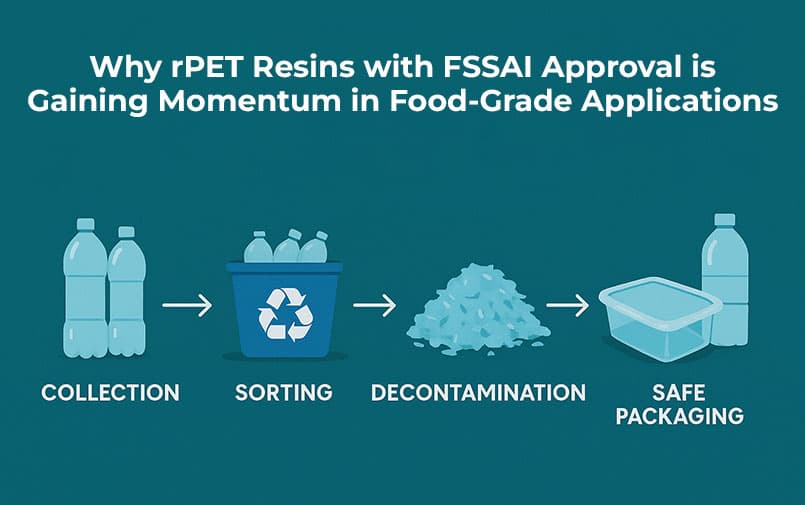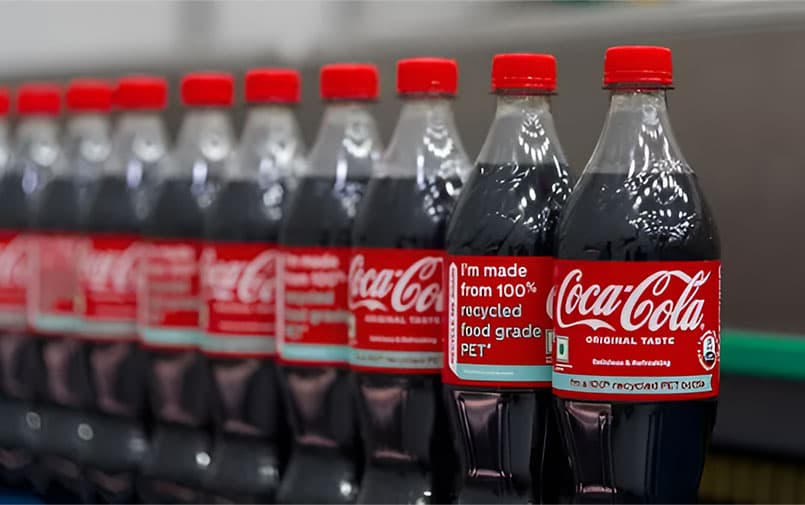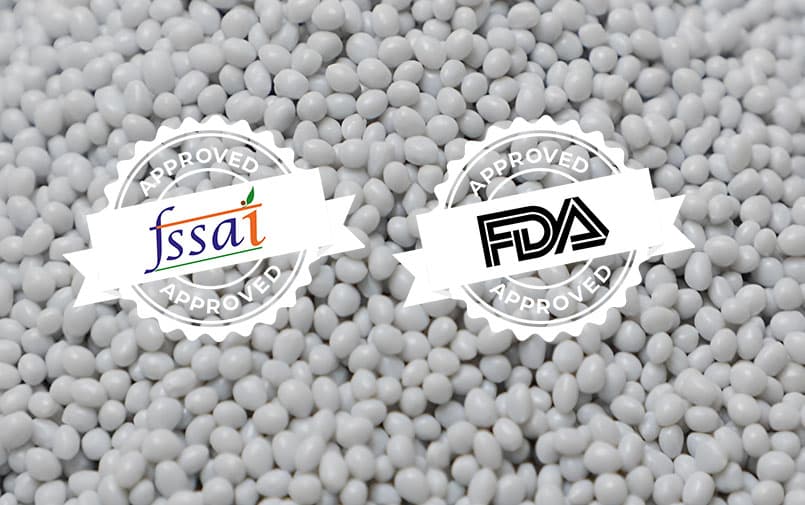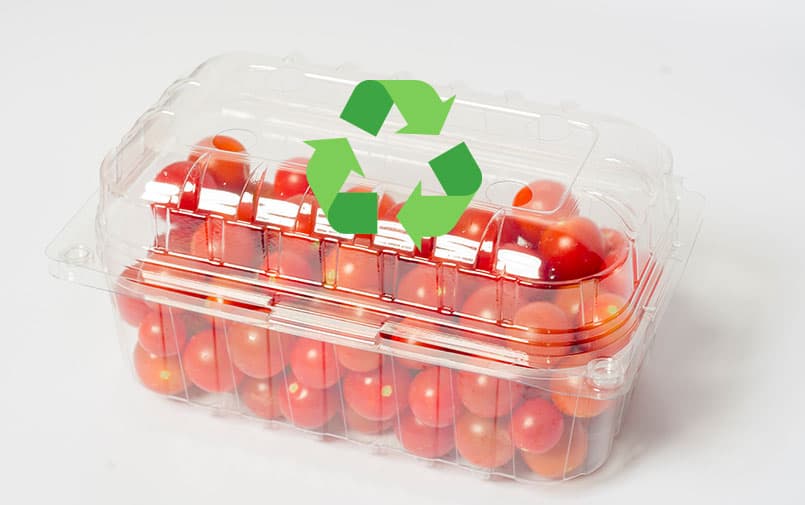Why rPET Resins with FSSAI Approval is Gaining Momentum in Food-Grade Applications

Walk into any grocery store and you’ll find bottles and jars with small but powerful words on the label: "100% recycled," "food-grade rPET," or "FSSAI certified." These aren’t just marketing lines. They represent a significant shift in the way packaging is produced, sourced, and regulated. For manufacturers in India, this shift isn’t a distant wave. It’s already here.
What’s Driving the Surge in FSSAI Compliance?
The packaging landscape in India is being reshaped by updated mandates under the Plastic Waste Management Rules and Extended Producer Responsibility (EPR) frameworks. These rules are now pushing packaging brands and converters toward the use of certified recycled materials.
FSSAI compliance has emerged as a benchmark for recycled materials used in direct food contact. For food-grade packaging, using uncertified recycled materials is no longer an option.
Brands that once considered recycled inputs as a sustainability choice are now treating them as a compliance necessity. The rise in FSSAI-certified food-grade rPET resin adoption is a direct response to this pressure, and manufacturers are catching on quickly.

Global Brands Are Moving. So Are Their Expectations.
Companies like Coca-Cola, Nestlé, and PepsiCo have already made public commitments to increase the percentage of recycled content in their packaging. These moves are being mirrored by Indian FMCG and beverage brands, particularly as they respond to both consumer demand and government mandates.
This momentum puts the spotlight on food-grade rPET resin India. Not just any recycled PET qualifies. The material must meet strict standards for safety, purity, and traceability, which are validated through certifications like FSSAI compliance.
As expectations rise, so does scrutiny. That’s where clarity matters. More on this can be explored in our feature on Food-Grade rPET Trends and Innovations.
How to Spot Safe rPET Resin in a Crowded Market
To ensure that the resin used is truly compliant, manufacturers should:
- Ask for valid and current FSSAI certification from suppliers
- Verify test reports for batch-wise migration and contamination testing
- Confirm the use of food-contact safe decontamination technologies
- Review packaging traceability and resin origin documentation
Working with a FSSAI-compliant recycled resin supplier ensures that these checks are part of every batch. This is not just a marketing claim.
JB Ecotex’s rPET Resins: Built for Safe Food Contact
At JB Ecotex, our FSSAI-certified food-grade rPET resin is designed for manufacturers who need assurance and accountability. Every batch is decontaminated using advanced Erema Vacunite technology and produced under systems that prioritise traceability.
Applications include:
- Beverage bottles
- Thermoformed trays
- Personal care containers
- Household goods
Our supply is backed by full documentation, third-party validation, and support across your packaging development cycle. As a food-grade PET granules supplier, we understand that our material needs to be both safe and compatible with your systems.
More on how we uphold this can be found in our overview of quality assurance in food-grade rPET.

How rPET Performs in Real-World Food Packaging
For manufacturers, choosing recycled materials is not just about compliance. It’s about whether the material can perform. Our FSSAI-certified food-grade rPET resin is tested for application performance.
This includes:
- Clarity and transparency in bottles
- Structural consistency for thermoforming
- Compatibility with hot-fill and cold-chain applications
- Barrier properties that retain shelf stability
Many of our buyers use food-grade rPET resin India-wide across applications without modifying their packaging infrastructure, making the transition seamless and scalable.
Why FSSAI Approval Sets the Standard
FSSAI compliance is not just about regulatory checklists. It is about consumer safety, brand accountability, and supply chain clarity. A food-safe recycled PET resin must go beyond visual clarity or strength. It must also meet safety thresholds for contaminants, heavy metals, and chemical migration.
An FSSAI certified material like ours helps avoid packaging delays, regulatory penalties, and unnecessary product recalls. It also signals to your buyers that your packaging is aligned with future-ready systems.
Navigating EPR and Mandatory Recycled Content Requirements
India’s packaging ecosystem is now closely tied to sustainability mandates under EPR. The upcoming obligations include minimum recycled content thresholds in specific packaging formats.
For manufacturers, this means switching to FSSAI-certified food-grade rPET resin is more than a responsible move—it is now aligned with the expectations of regulators and clients alike. Brands can also read about how compliance intersects with sustainability in our feature on FSSAI-Compliant rPET Resins in India.

How to Avoid False Compliance Claims
Some times "food-grade rPET" materials may not undergo the level of scrutiny required to qualify as FSSAI-approved plastic chips for food packaging.
What to ask your supplier:
- Is the resin certified by FSSAI for food contact?
- Can you provide batch-level testing reports?
- Is the decontamination process recognised by regulatory bodies?
- Are you registered as an FSSAI-compliant recycled resin supplier?
Verifying these answers protects your brand and product integrity.
Certifications to Ask For Before You Buy
To ensure full traceability and confidence in material safety, manufacturers should request:
- Active FSSAI certification copy with manufacturer details
- Batch migration test results for each delivery
- Chain-of-custody documentation
- Details of decontamination process through technology like Erema Vacunite
These documents build transparency and help avoid material disputes during audits.
What This Means for the Packaging Industry
For packaging manufacturers, the pressure to transition to safe and sustainable materials is building. As more brands switch to sustainable PET resin for food packaging, demand for certified materials continues to rise.
This creates a competitive advantage for suppliers and converters who align early. Using consumer-safe rPET for food-grade usage can simplify audit cycles, meet tender requirements, and position your business as a compliant supplier.

Align with India’s Packaging Mandates Using FSSAI Certified Resins
If you are a manufacturer or converter preparing for the 2025 mandates, JB Ecotex’s FSSAI certified food-grade rPET resin helps you source materials with confidence. We offer documentation, decontamination, and delivery that align with both current needs and evolving standards.
Write to us at aagam@jbecotex.com to begin sourcing.
FAQs: What Manufacturers Need to Know
- Is PET plastic food safe?
Yes, when properly processed and certified. A FSSAI-certified food-grade rPET resin meets India’s food safety standards and can be used in direct-contact applications. - Is PET 1 plastic food safe?
Yes. PET 1, when sourced from verified and decontaminated streams, can be safe for food contact. Verification through FSSAI compliance ensures suitability. - What is the difference between food-grade rPET and recycled PET?
Food-grade rPET must meet contamination and migration standards for direct food contact. General recycled PET may not be decontaminated to this extent. - Do I need FDA or FSSAI approval for export packaging?
It depends on your destination. JB Ecotex supports both FSSAI and FDA-approved plastic through B2B rPET resins for packaging requirements across markets. - What documents should I ask my supplier for?
Request FSSAI certification, batch-wise test reports, and traceability documents. Ensure you are sourcing from a trusted food contact safe rPET supplier. - JB Ecotex Ltd and FSSAI Compliance for Packaging
Packaging is becoming a regulated space where documentation and compliance are no longer optional. Sourcing certified, traceable, FSSAI-certified food-grade rPET resin is an essential part of preparing your production line for what comes next. Reach out to get FSSAI compliant.
Choose JB Ecotex. Choose food-grade rPET resin, India can rely on.
